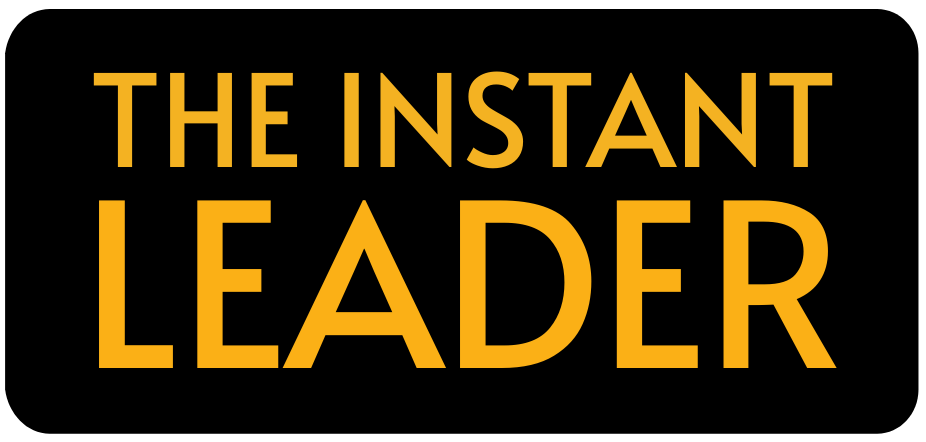Stepping into a new organisation can feel like landing on a different planet. Different practices, different languages, different perspectives. It's all too easy to feel lost and disoriented as if you're losing your individuality.
The nagging doubts and the nagging question, "How do I fit in without losing myself?" It can take a bit of time, a good dose of soul-searching, and a solid strategy, but the good news is this step-by-step guide can help you thrive in your new environment, without compromising your unique identity.
Not fitting in can lead to isolation, and conversely, conforming too much can lead to a loss of self, both of which can severely impact your effectiveness and happiness at work. Hence, finding the right balance is crucial.
Don't Settle for Lose-Win
A common myth is the belief that you must completely change your personality to fit into an organisation. Another misconception is that all organisations are the same, hence the same approach applies everywhere. These generalisations are as misleading as they are harmful.
We're all created unique, with our own set of skills and abilities. As Romans 12:6 says: "We have different gifts, according to the grace given to each of us..."
Remember, organisations are built on diversity. They need your unique skillset as much as you need them.
Fitting in While Still Standing Out
Maintaining your individuality within a pre-established culture can be like walking a tightrope. Lean too far on either side and you'll fall off, either by alienating yourself from the core team or blending into the dull and average status quo.
Your goal is to gain enough understanding of how things are done around here so that you don't inadvertently
Understand the Culture
Before you can begin to make your mark, you must first understand the existing culture. This involves familiarising yourself with your colleagues' dynamics, your manager's expectations, your team's motivations, and the needs of your clients or customers.
Start with observation. Understand the new environment, the organisational culture, and the people. Proverbs 19:20 advises us to "Listen to advice and accept instruction, that you may gain wisdom in the future."
To be a great leader first requires you to be a great follower.
Prioritising relationships is good guidance at any stage of your work, but especially so if you're at the beginning of your role.
Resist the temptation to rush in like a bull in a china shop, and be disruptive all because you want to make an impression and show your worth.
Equally, don't sit on the sidelines if you have ideas for improvement. As you observe, you'll figure out the best way to get your ideas across. This is different in different organisations.
Maybe there's an open-door policy where you can stroll into the relevant person's office for a quick chat. Maybe it's during scheduled meetings. It could be that email or the internal communication platform is the preferred way to share. These are the types of protocols you'll want to make a mental note of.
Be Authentic and Consistent
Never compromise on your authenticity. Let your unique strengths shine through in all your interactions, be it with your manager, peers, team, or clients. Authenticity builds trust, which is a vital element in any relationship.
There's a reason you were chosen for this role, and it's not so you can blend into the background and be invisible.
Be confident in who you are and develop the skills to express yourself when your opinions can ultimately help the organisation achieve its objectives.
If you have a fear of confrontation, this is absolutely something you will want to work on.
Avoiding conflict because you're scared of the potential backlash vs. yielding because it's insignificant in the grand scheme of things are two very different motivations for the same action.
It's the feeling of being suppressed and stuck vs. the feeling of making an empowering choice. This leads us nicely to the next point.
Respect the Culture but Don't Fear Challenging It
While it's important to respect the organisation's existing culture, don't hesitate to challenge the status quo when necessary. Encourage dialogue, promote a culture of respect, and don't be afraid to voice your opinions. This balance will enable you to catalyse positive change in your new organisation.
"This is the way we've always done it" is never a good enough reason to continue doing something.
If Henry Ford, the founder of the Ford Motor Company simply adhered to the status quo at the time, we might still be using horse-drawn carriages for transport.
If Netflix, a fledgling company in the 90s, didn't defy the standard practice of renting movies from a physical store, the convenience (maybe not always a good thing but that's not the point here!) of watching content on demand might not exist today.
Challenging the culture to pursue a healthier and better one is a good thing. It's just about how you go about it.
But...
What if my values don't align with the organisation?
Any obvious misalignment in values should've been identified during your initial research into the organisation before you agreed to the role. If this didn't happen, then take this as a lesson for next time.
If the lack of alignment started showing up after you joined, then that might mean an immediate exit.
Values are demonstrated through people. It could be that your immediate reporting structure or team aren't faithfully representing the organisational values as a whole, in which case it could be an opportunity for you to affect change through your leadership.
Am I going against my beliefs by adapting?
Adapting doesn't mean changing your identity. Your identity is who you are, not what you do.
The more you develop your skills of influence and ability to relate to different personalities in different ways, the stronger your leadership becomes.
Different situations and contexts will test your versatility as a leader, consider this par for the course. These same challenges that you may find stressful are also the necessary opportunities that grow your instant leadership.
It's Your Time to Shine
Fitting into a new organisation without losing your individuality is not about conforming or rebelling, but rather about enhancing the culture with your unique strength and authenticity.
As Microsoft CEO Satya Nadella aptly put it,
"Our industry does not respect tradition - it only respects innovation."
So, as you embark on this journey, remember to balance respect for your new organisation's traditions with the innovation that you bring to the table.







